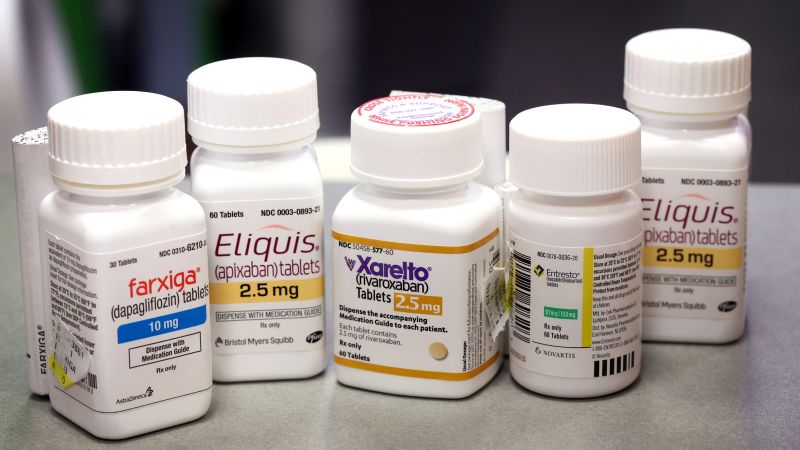The Biden administration announced on Thursday that Medicare’s new power to negotiate drug prices is expected to lead to an estimated $6 billion in savings for the federal government and a $1.5 billion reduction in out-of-pocket costs for seniors when the lower prices take effect in 2026. This negotiation program, authorized by the 2022 Inflation Reduction Act, is a key initiative in the White House’s efforts to lower Americans’ cost of living, particularly for prescription medications, after inflation rose sharply during President Joe Biden’s term. Vice President Kamala Harris is anticipated to continue campaigning on reducing drug prices leading up to the November election.
President Biden expressed relief for the millions of seniors who take these drugs for various conditions, stating, “It’s a relief for the millions of seniors that take these drugs to treat everything from heart failure, blood clots, diabetes, arthritis, Crohn’s disease, and more – and it’s a relief for American taxpayers.” The administration is expected to release information later in the day about the results of negotiations with drugmakers, who have been attempting to block the program in federal court.
The initial round of negotiations focused on 10 of the most widely used and expensive drugs taken by Medicare enrollees, including medications such as Eliquis, Jardiance, Xarelto, and others. The estimated $6 billion in savings is based on Medicare’s 2023 drug costs, considering rebates and discounts provided to Part D plans by the drugmakers.
While the pharmaceutical industry has been fighting against the negotiation process, with multiple lawsuits filed in federal courts, a federal district court judge in Ohio recently dismissed one challenge. The industry remains concerned about future rounds of negotiations and the impact on innovation and patient care in the United States.
Despite industry pushback, HHS Secretary Xavier Becerra emphasized that Medicare considered multiple factors when developing its initial negotiation offer, including the drugs’ clinical benefits and prices of alternatives. After this initial round, Medicare will continue negotiations on additional drugs in the years to come, with the possibility of including Part B drugs administered by doctors in 2028.



